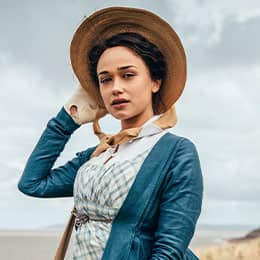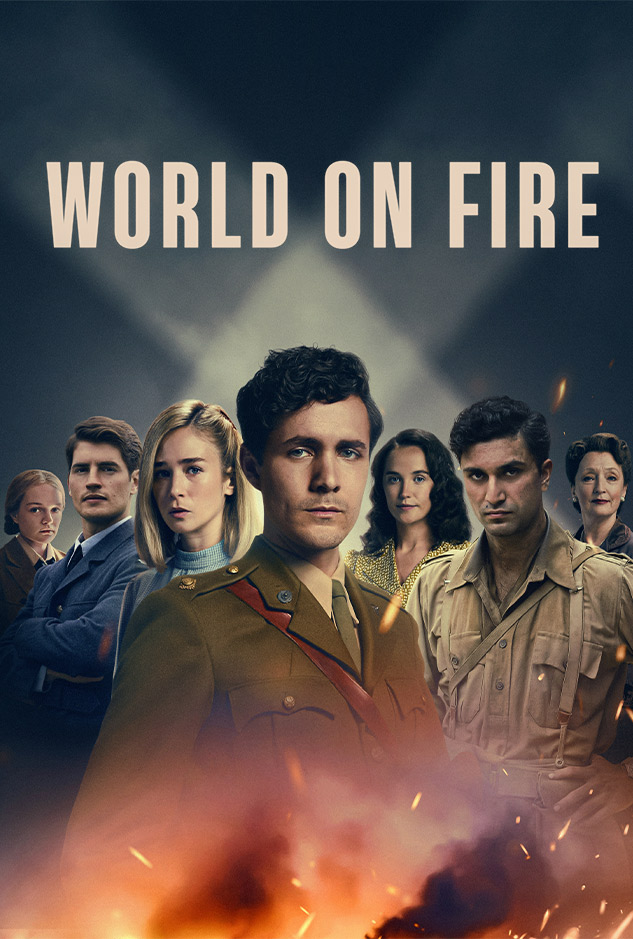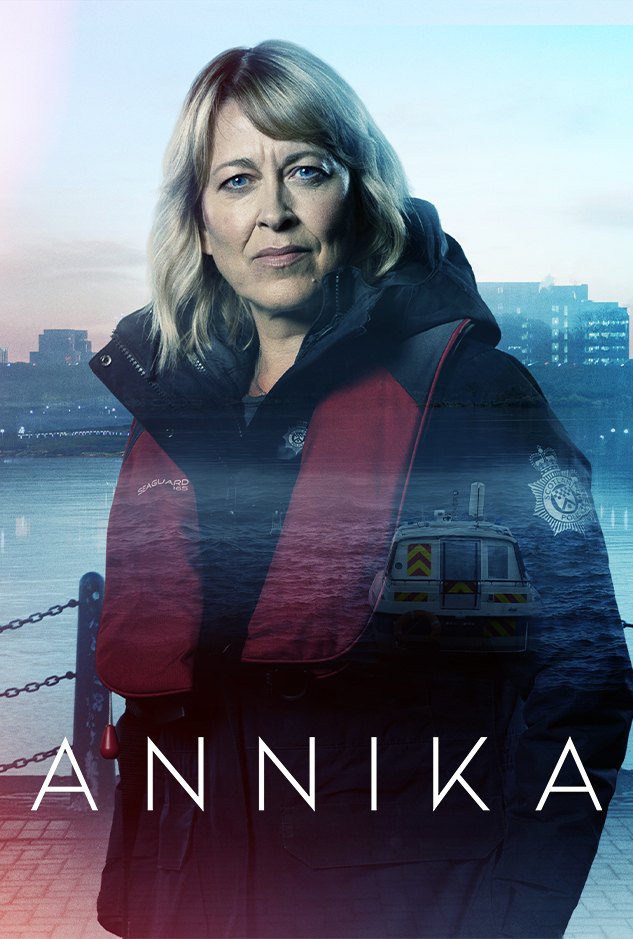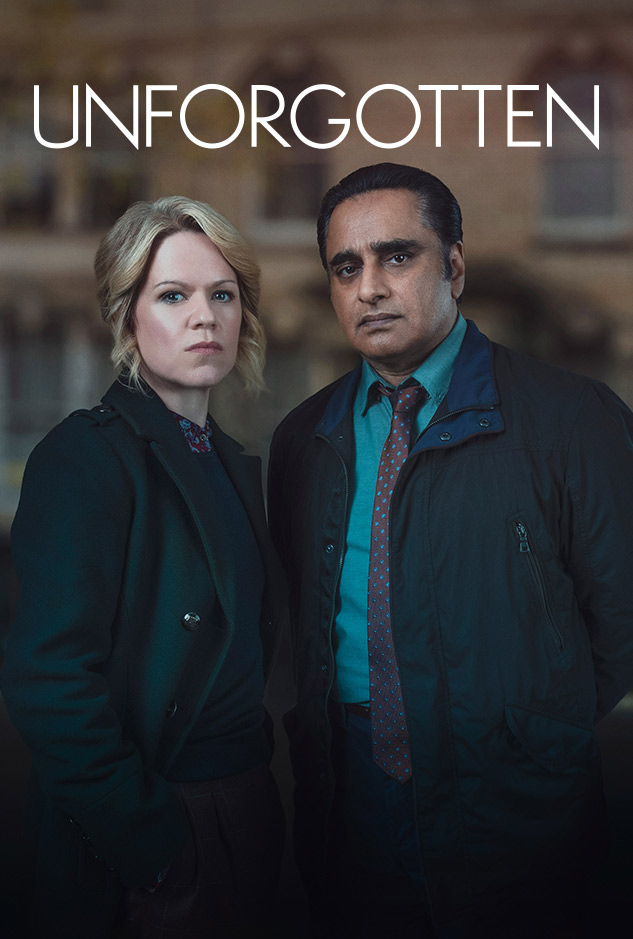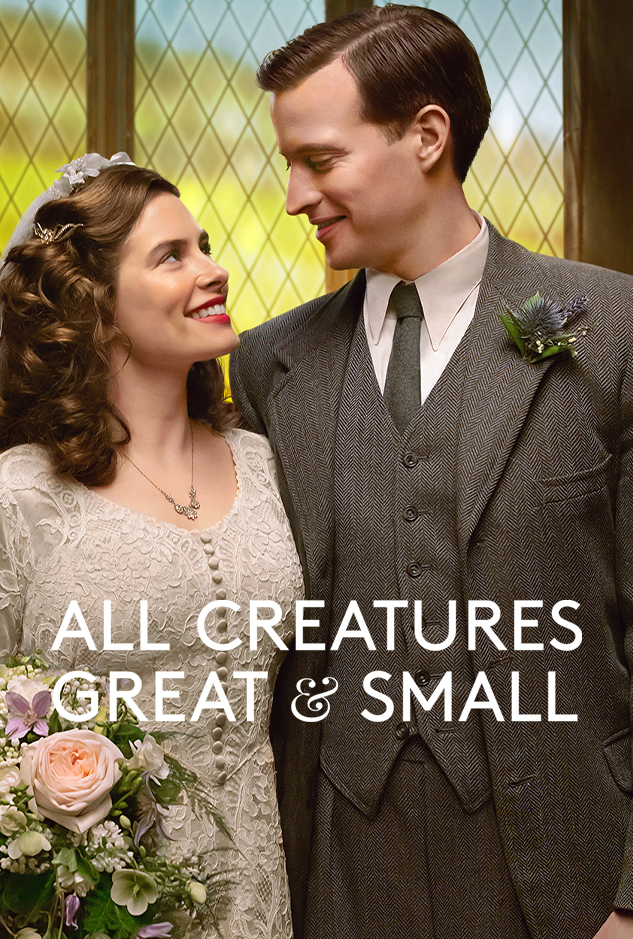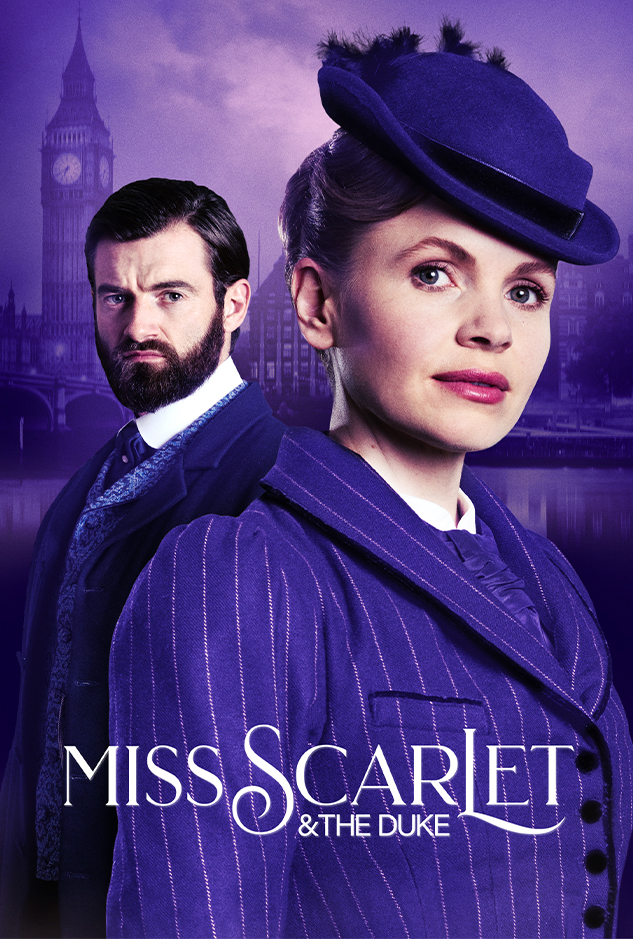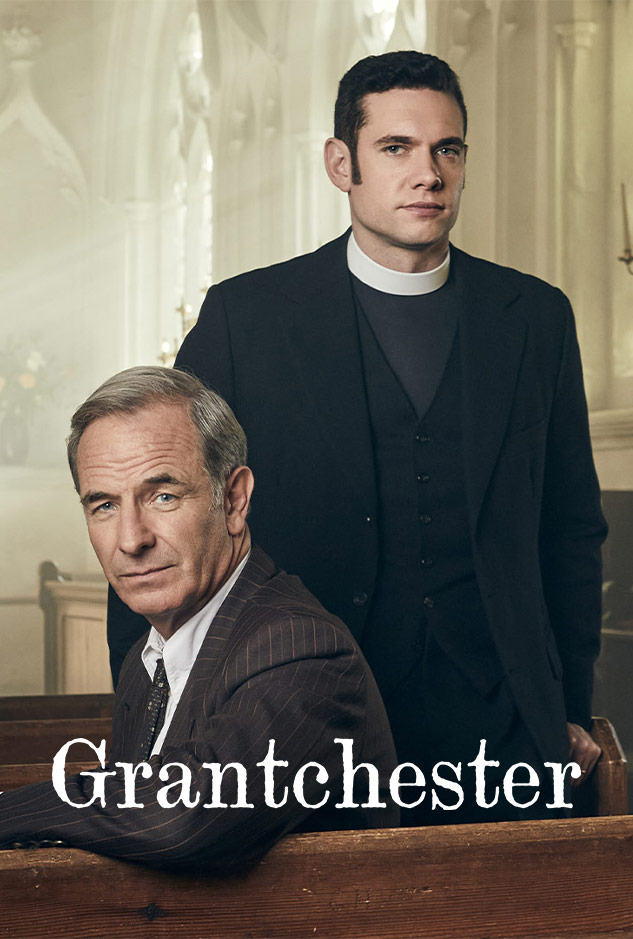Interview: Ben Lloyd-Hughes
Get to know Sanditon Season 2 leading man Ben Lloyd-Hughes (he loves rom-coms!) and discover his insights into reclusive romantic Colbourne as he takes us behind the scenes of key moments in Charlotte and Colbourne’s tumultuous relationship.
Contains Significant Episode 6 Spoilers
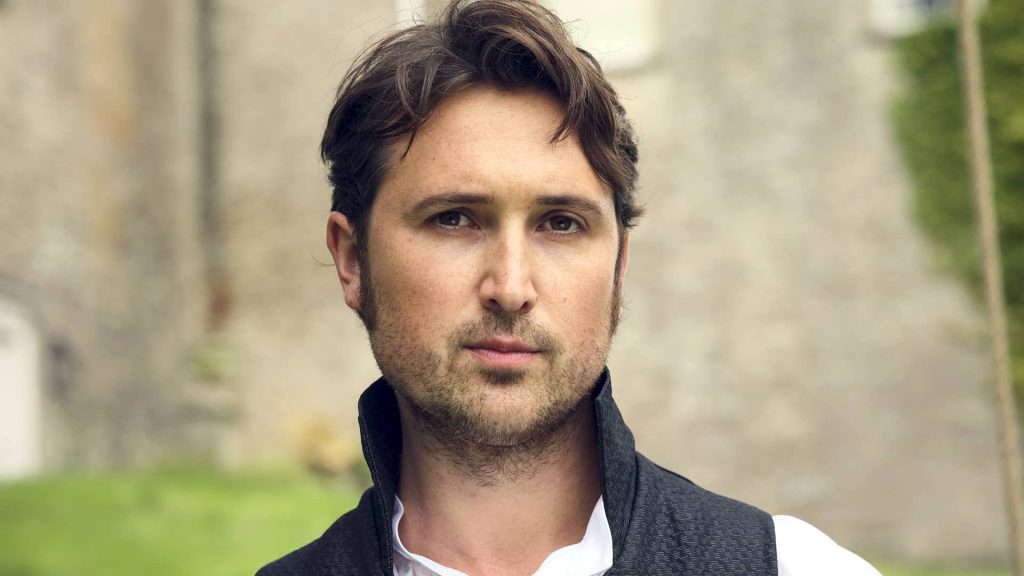

If you were setting up Alexander Colbourne with a friend, how would you describe him?
I would say do not judge him;—do not judge a book by its cover—and that he takes a while to warm up. It will not be the best first date, but give him a second date. Give him a chance. He’s got a great sense of humor somewhere down there—he is quite dry. If you get him talking about horses and books and snails, then he can get a bit more animated. There is a really a decent person there. He will not be for everyone, but I think deep down, he could really make an amazing partner.
Now that we know what in Colbourne’s past has been torturing him, what do you think it will take for him to forgive himself, or at least believe in the version of himself that Charlotte believes that he can be?
I don’t know if Dr. Fuchs offers any therapy…I think he would certainly need a therapist, and maybe to do some meditation. But I think, as you say, he needs to forgive himself, which is really hard because he blames himself for a lot of things that have happened in the past. He needs to love himself and to feel like he is worthy of being loved, and that his love is also a gift to someone else, not a curse, which are both quite big things. I think one of the reasons why, hopefully, this storyline or Sanditon will appeal to people is that even though it’s set a long time ago with different context, a lot of us have felt, in those times, like we do not deserve to be loved by someone or people, and that our love is not a gift, and no one would want it.
What advice would you have for Colbourne?
He could give me advice! But I think what he needs to do is breathe. I think he needs to take a moment, go on holiday, take a little time, and really think about what he wants in life; what is important to him, what his values are. So often, he’s just someone who has shut himself away from his own feelings and lost touch with his own needs and desires—it’s all about getting on day by day. A lot of his energy is taken up with what he thinks is best for his daughter and his niece, and running Herrick Park. I think he is one of those slightly selfless people to the risk of being a martyr, where he is not looking after himself enough, not looking after his own needs. He needs to think a bit more selfishly about what he can do to help himself.
Charlotte says to Colbourne something along the lines that [Augusta and Leo] would be much better off with a father, a guardian, who loves himself and shows them attention—that that is the [most important] thing. I’ve heard people talking about how the greatest gift a parent can give to your children is to love yourself first, before loving them, because it teaches them a really valuable lesson of self-care. He needs to really make sure he is fully aware of what he wants in life, and what is important to him, and his values, and then go out and get them.
Let’s revisit some of Colbourne’s most powerful moments of Season 2, starting with the garden party. Why does he let Lennox get in his head?
Because of what has happened in Colbourne’s past, Lennox is that person in your life—and I know it from my own personal experience—that as soon as they walk into a room, your stomach turns and it flips. You can’t speak; you freeze. It’s something that you can have with people you love, as well, and Charlotte, for Colbourne, is someone of that certain type, where his stomach flips—he’s in awe of her, and he cannot quite get the words out. But with Lennox, it’s something different. I have certainly had that with people in the past, in terms of someone who really pressed your buttons, and it’s definitely stuff that I remember feeling and tapped in to as an actor. I remember talking to Justin [Young], the head writer, and Belinda [Campbell], the producer, thinking gosh, there are so many moments where I want to, as Colbourne, just punch Lennox in face. Why am I letting him get away with this kind of whispering in my ear?
But I think it’s because when there is a level of irate, it is almost a shock to see him. And it brings so many things flooding back, that it just leaves Colbourne in shock, and completely disarms him. Coming to the garden party is such a big thing for him, having been isolated for so long, and it does remind me of going to a party as an 18-year-old, and suddenly the guy who stole your girlfriend is there and you are completely immobilized in fight or flight. He is that one person, for Colbourne, who all sense of calm and any sense of focus goes. I think there is a glaze of anger.
Another big moment is Colbourne and Charlotte’s first kiss.
Yes, a big moment as a character, as an actor, both. It’s a real lead up of longing for Colbourne. Leading up to the kiss, so much baggage has been hanging over him for so long that it is incredibly powerful for him. Hopefully, I think we got across the kiss not necessarily being led by Colbourne, in any kind of aggressive sense, and it not coming from Charlotte out of any kind of pity, but out of both a physical desire and an emotional desire. It is not just a physical lust; there is a double meaning to it.
Luckily, a large part of the day had been dedicated to filming that scene, so it felt like we could really take our time with it. Sometimes when you’re filming, the period gods can smile on you, whether it’s not raining that day or certain things happen to help the scene. We had meant to film that scene on a certain day, but it got [rescheduled], which just meant that you could take even more time in advance to think about the lines, and how you might want to approach the kiss. It gives you longer to film as your character, even more, and with Rose interacting with her character, even more. You have even more, in your body and in your soul, of what those two characters mean to each other. So there was no pressure to rush what was such an important moment for these two people.
There’s a scene that’s not just dramatic and cinematic and powerful for Colbourne, but really necessary for his character—his dark night of the soul ride along the beach after he leaves Lennox at the encampment. What can you share about that scene?
That was amazing, because it was a scene added slightly later on. I think we filmed all the Lennox stuff in that tent, and it was felt that a scene was needed to really get even more into Colbourne’s head space before he gets back to Herrick Park. I remember, on the day of filming it, Ethosheia Hylton, the director, got me to sprint up and down the beach before I jumped on the horse. She wanted that sense of the physical exertion [you get] when you’re riding a horse, as well as the emotional exertion. She wanted my breath to be going as much as my eyes. I’ve not watched all the episodes fully, but hopefully in that moment you really see his whole dilemma, his whole life, coming to a crescendo; his past meeting his future.
You get a sense that he is, in that moment, resolving to become the loneliest man in the world, because he feels like it is the right thing to do. After his interaction with Lennox, he’s convinced that he is a destroyer of people he loves, which makes his attempt to open up to Charlotte—however late—especially courageous. What did it take for him to make that visit to Trafalgar House?
It is so difficult for someone like Colbourne. It is his Everest, to break out of his comfort zone in that way and show, for him, that vulnerability of what he thinks is laying his cards on the table. What really spoke to me about Colbourne so much, is that he is a man of enormous integrity that permeates through him, often to his own detriment. What he thinks is the honorable decision is not necessarily the honorable decision for everyone else, because it’s all subjective. Sometimes he can cut off his nose to spite his face and be so proud. What he thinks is honorable is actually upsetting both himself and other people, and no one is left happy.
We actually re-shot that last scene of Season 2 to really make sure we got it right, because it is such a pivotal moment of what is happening for Colbourne and Charlotte. I absolutely loved the opportunity to play lots of different things all at once. Colbourne has so much going on, so many layers there, that it is not just straightforward. You’ve got what he’s saying, being one thing, and then what he is feeling, being another, and then all the layers before that of his fear, and insecurity, and ego, and pride. And then his love for Charlotte, and how the words are coming out, but not the necessarily in the right order. I love a scene where the audience are not watching the best version of that scene, which is to say that they are aware of what they want these people to be saying, but the people do not have the vocabulary to say it.
After all this insight about Colbourne, let’s get to know you! What are you interested in?
I love sport, first of all. I love football, my favorite team is Queens Park Rangers. I get huge escapism from watching and partaking in sport. As an actor, often you spend so much time in storytelling—either being lucky enough to be part of telling a story, such as filming or working, or unlucky enough that you are partaking in a type of storytelling by auditioning. It can take up so much of your day-to-day time that to escape or to switch off, sport can be the thing that takes your mind away from storytelling. Sometimes documentaries and sport can be an easier escape, rather than a novel, or a film, or a drama. Because you are so aware of the mechanisms in place, or you know all the actors in it, or you have worked with them, it is harder to really properly not think about your day job.
I do genuinely love romantic comedies. I think there is such an escapism to them, and it’s such a go-to place for me when I am feeling low or a certain way. I think what I love about a good romantic comedy, is that you are able to see the flaws in the characters, but still warm to them. Something that I love about Sanditon and about Colbourne. Is that you see both the positive sides to their character, and the negative sides to their characters. Some of my favorite books are in that vein. One of my favorite books is Any Human Heart, which is about one guy, you follow him through his life. Other than that, I read a lot of plays. I sometimes teach a course about play reading where we read a play a week. Right now, I’m reading a play called Trouble in Mind, by Alice Childress. The week before that I was reading a play called Time and the Conways by J.B. Priestley. Being able to read a play a week is a fantastic thing to do—a novel can take quite a long time, but a play has a story which you can fully get lost in without it taking forever.
Let’s do a quick lightning round to learn more about you! Which do you prefer, country or city?
Ben Lloyd-Hughes: City. I am a London boy. I love the countryside, but I worry that I would get a bit isolated, a la Colbourne.
MASTERPIECE: Horse or dog?
Ben Lloyd-Hughes: Dog. They are simple, and horses are quite terrifying beasts. They’re beautiful, but I think, because I am a London boy, I wasn’t raised, didn’t grow with horses.
MASTERPIECE: Well, Colbourne certainly seems like he is very comfortable with them!
Ben Lloyd-Hughes: Colbourne loves horses.
MASTERPIECE: Archery or dancing?
Ben Lloyd-Hughes: Dancing.
MASTERPIECE: Period drama or contemporary?
Ben Lloyd-Hughes: Period drama, I think.
Why do you think we love period dramas so much?
I think there is an amazing escapism to it. It does not remind you of your day-to-day struggles or life, and you can escape in a period drama, potentially more so than you can in the contemporary, because it feels like another world. Everything looks different and, metaphorically, tastes different, so you can really shut your eyes and go there. There is a quote, “The past a foreign country; they do things differently there.” When you’re looking in the past, there are different rules and different social etiquette. For a lot of people, especially in these troubled times, there is security in thinking of or watching period drama, because the world now can feel a bit crazy, and we do not know the rules, and anything can happen. Whereas in the past, we know what happens, because we can read about it in the history books. You cannot change the past, and therefore in a period drama, there is a safety blanket there.
I’ve spoken with certain people about period dramas, and it either reminds them of a world they either lived in as a child or, if it is way back in the past, a world where there is a ceiling to it, and a floor, and two walls on either side, and you can keep that in a little chocolate box and watch it through a doll’s house. There is something quite secure and safe for people about that.








